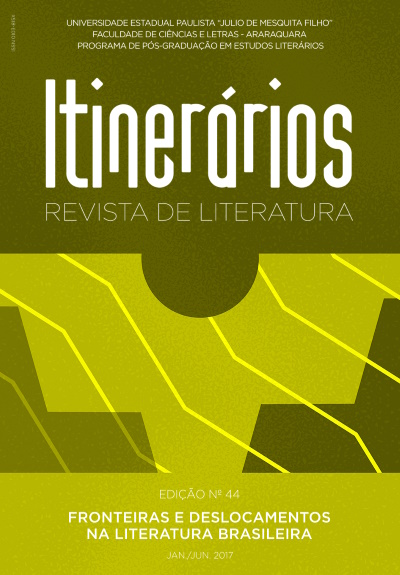Avalovara de Osman Lins: a tecitura quadridimensional de um mundo
DOI:
https://doi.org/10.58943/irl.vi44.8916Palavras-chave:
Heidegger, Literatura, Mapa, Mundanidade,Resumo
Este artigo tem como objetivo interpretar como se estrutura a espacialidade do mundo em Avalovara (1973), do escritor pernambucano Osman Lins. Para tanto, partimos dos conceitos de “mundo” e de “mundanidade” do pensador alemão Martin Heidegger, os quais são aprofundados pela discussão sobre as ideias de “heterotopia” e “similitude” de Foucault, de “mapa” de Deleuze e Guattari e da própria teoria literária de Lins. Sendo assim, interpretamos que a tecitura do mundo ficcional depende da articulação de quadros ou dimensões hermenêuticas: 1) facticidade percorrida pelo escritor; 2) interpretação desta facticidade por parte do escritor; 3) estrutura do texto narrativo, que exige conhecimento sobre a arte narrativa; e 4) interpretação destas três dimensões por parte do leitor.
Downloads
Publicado
Edição
Seção
Licença
Os manuscritos aceitos e publicados são de propriedade da revista Itinerários. É vedada a submissão integral ou parcial do manuscrito a qualquer outro periódico. A responsabilidade do conteúdo dos artigos é exclusiva dos autores. É vedada a tradução para outro idioma sem a autorização escrita do Editor ouvida a Comissão Editorial.

